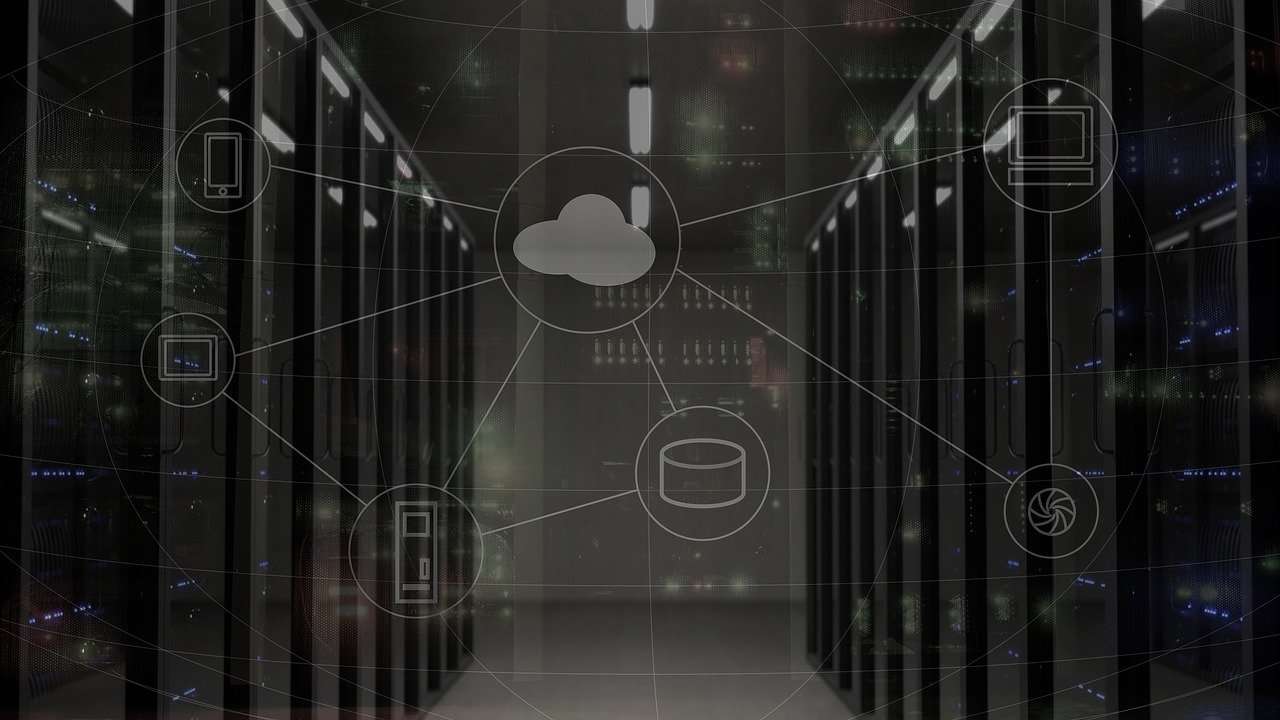Summary: This blog post explores the sales tax regulations in Texas for SaaS, digital products, and cloud-based services, providing insights into tax rates, exemptions, and the impact on businesses operating in the state.
For a comprehensive overview of Texas sales tax, including the latest rules and regulations, visit our Texas Sales Tax Guide. This resource provides all the information you need to ensure compliance and understand your tax obligations in the state.
Does Texas require Sales Tax on SaaS?
Texas requires sales tax on Software-as-a-Service.

Protect your SaaS business from audits and penalties. Learn more about our SaaS Sales Tax Solution and see how we can help you stay compliant.
Why does Texas require sales tax on Software-as-a-Service (SaaS)?
While Texas requires sales tax on Software-as-a-Service, you may only have to charge sales tax on 80% of the sale price if the product fits Texas’s definition of “taxable data processing services.”
If you are unsure whether your Software-as-a-Service fits Texas’s definition of a “taxable data processing service”, you should consider getting a Private Letter Ruling (we can help you with this).
What is a taxable data processing service?

Texas states that a “taxable data processing service” is “…word processing, data entry, data retrieval, data search, information compilation, payroll, and business accounting data production … and other computerized data and information storage or manipulation. ‘Taxable data processing services‘ also include the use of a computer or computer time for data processing, whether the processing is performed by the provider of the computer or computer time or by the purchaser or other beneficiary of the service. ‘Taxable data processing services‘ do not include the transcription of medical dictation by a medical transcriptionist. ‘Data storage,’ as used in this section, does not include a classified advertisement, banner advertisement, vertical advertisement, or link when the item is displayed on an Internet website owned by another person.”
Is SaaS considered tangible personal property in Texas?
SaaS is considered tangible personal property in Texas.
What is the SaaS sales tax in Texas?
Texas imposes a 6.25% state sales and use tax on all taxable SaaS and tangible software. Local taxing jurisdictions (cities, counties, special purpose districts and transit authorities) can also impose up to 2% sales and use tax for a maximum combined rate of 8.25%.
Where can you go to learn more about why Texas requires sales tax on Software-as-a-Service (SaaS)?
Section 151.0035 defines what is considered a taxable data processing service in Texas. Sec. 151.351 states that the first 20% of the sale price of a data processing service is not subject to sales tax laws in Texas.

Does Texas require sales tax on the sale of Downloadable Prewritten Software?
Texas sales tax applies to downloadable prewritten computer software.
Why does Texas collect sales tax on Downloadable Prewritten Software?
Texas includes “computer programs” in its definition of tangible personal property. Therefore, the state is obligated to collect sales tax on downloadable prewritten computer software in Texas.
Texas defines computer programs as “a series of instructions that are coded for acceptance or use by a computer system and that are designed to permit the computer system to process data and provide results and information.”
Texas may collect sales tax any time the computer program, or a license to use the computer program, is transferred for consideration, stored, used, or consumed in Texas. Tax rules apply regardless of if it is in electronic form or tangible physical media.
Any other charges made in connection with the sale of the program (such as installation, modification, repair, maintenance or restoration) would also be subject to sales tax compliance. An exemption might apply for software that is related to manufacturing. In isolated instances, a resale exemption could also apply.
Where can you go to learn more about why Texas sales tax laws apply to Downloadable Prewritten Software?
Section 151.009 specifies that a “computer program” is part of the definition of taxable tangible personal property. Texas’s definition of a computer program can be found in Rule §3.308 (1). Rule §3.300 outlines the exemption criteria for software related to manufacturing.
Does Texas require sales tax on the sale of Downloadable Custom Software?
Texas does not collect sales tax on downloadable custom computer software.
Why does Texas not require sales tax on Downloadable Custom Software?
Texas will default to requiring sales tax on custom computer software unless it can be shown that exclusive rights to the software were transferred to the customer. If exclusive rights to use the software were transferred to the customer, then the sale is for a nontaxable service.
During audits, Texas has been known to investigate the contracts between the software developers and the customer to determine if the license was exclusive and transferable. The custom computer software must also be created from scratch and not be comprised of pre-built code in order to be categorized as an exempt service.
Where can you go to learn more about why Texas does not require sales tax on Downloadable Custom Software?
Section 151.009 specifies that a “computer program” is part of the definition of taxable tangible personal property.
Texas Hearing No. 103,863 specifies that if exclusive rights are transferred to the customer, then the custom software is considered a non-taxable service. Texas Hearing No. 32,495 specifies the computer software must be created from scratch for the exemption to apply.
Does Texas require sales tax on the sale of Digital Products?
Texas charges sales tax on digital downloads such as photographs, music, and ebooks, videos, audiobooks, digital art, and PDFs.

Why does Texas require sales tax on Digital Products?
Texas sales tax applies to tangible personal property that can be “seen, weighed, measured, felt, or touched or that is perceptible to the senses in any other manner, and includes a computer program”.
Downloadable digital products are considered tangible personal property because it causes a physical change to the medium on which it is stored and can be measured.
Where can you go to learn more about why Texas requires sales tax on Digital Products?
More information on why Texas charges sales tax on digital downloads like photos, music, videos, and ebooks can be found in Private Letter Ruling 200005359L. Texas defines tangible personal property in Tex. Tax Code Ann. § 151.009.
Does Texas require sales tax on the sale of Non-Fungible Tokens (NFTs)?
It is unclear if Texas sales tax regulations apply to Non-Fungible Tokens (NFTs).
Why is it unclear if Texas charges sales tax on Non-Fungible Tokens (NFTs)?

Digital goods are subject to sales and use tax on the theory that when a customer downloads a good, they are altering the media on which the good is stored. For instance, downloaded music is tangible personal property since it physically alters the medium on which it is stored and can be measured. This is according to Texas Policy Letter Ruling No. 200101966L.
In order to apply the same sales and use tax approach to NFTs, one may need to take into account if NFTs exhibit the traits of tangible personal property. One may also need to consider whether the NFT modifies the medium on which a tangible thing is stored or captured on a media that can be seen, weighed, measured, felt, or touched (See Tex. Code Ann. Sec. 151.009).
This raises the question of what would happen to the sales tax if the buyer just receives the special code for an NFT rather than the tangible personal property it represents in its whole. Even if the wallet with the unique code is located outside of Texas, Texas might regard viewing one’s own NFT within the state as causing a minute change to the display. Hence, Texas sales and use tax would apply to the NFT.
For now, we recommend getting a private letter ruling in Texas for clarification on if your NFT would be subject to sales taxes in Texas.
Are cloud-based services taxable in Texas?
Texas sales tax applies to Infrastructure-as-a-Service (IaaS). This could include things like web hosting, cloud computing, and web storage.

What is Infrastructure as a Service (IAAS)?
IaaS, or infrastructure as a service, is a cloud-based software that gives users access to processing, storage, networks, and other computing resources so they may deploy and operate software, such as operating systems and applications. The consumer has control over the delivered apps, storage, and operating systems. The consumer does not have control over the underlying cloud computing infrastructure.
Why does Texas charge sales tax on Infrastructure-as-a-Service (IaaS)?
Texas has a sales and use tax that applies to the sales of web services that provide clients with access to information technology infrastructure.
The services, also known as “cloud computing” services, give customers the ability to:
-
run applications,
-
monitor computers and computer usage,
-
send electronic communications,
-
host web domains,
-
copy information to sites inside the service provider’s network, and
-
route end-user requests for customer data to sites that can deliver the information.
In accordance with Texas Tax Code Ann. 151.0035, the costs charged for these cloud computing services, as well as any incidental usage fees, are taxable data processing services. The Texas Tax Code Ann. section 151.0103 states that advanced email software services are taxed as telecommunication services. Whereas the Texas Tax Code Ann. 151.0038 states that cloud computing tax rules apply if an information service gives clients access to data acquired through the internet.
According to Texas Tax Code Ann. 321.203 and Tex. Tax Code Ann. 323.203, local taxes owed on the sales of data processing and information services offered by a cloud computing service provider are sourced to the local taxing jurisdictions in force at the customer’s Texas location.

Disclaimer: Our attorney wanted you to know that no financial, tax, legal advice or opinion is given through this post. All information provided is general in nature and may not apply to your specific situation and is intended for informational and educational purposes only. Information is provided “as is” and without warranty.
What you should do now
- Get a Free Sales Tax Plan and see how Tax Valet can help solve your sales tax challenges.
- Read more articles in our blog.
- If you know someone who’d enjoy this article, share it with them via Facebook, Twitter, LinkedIn, or email.


